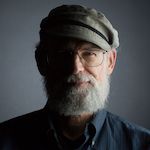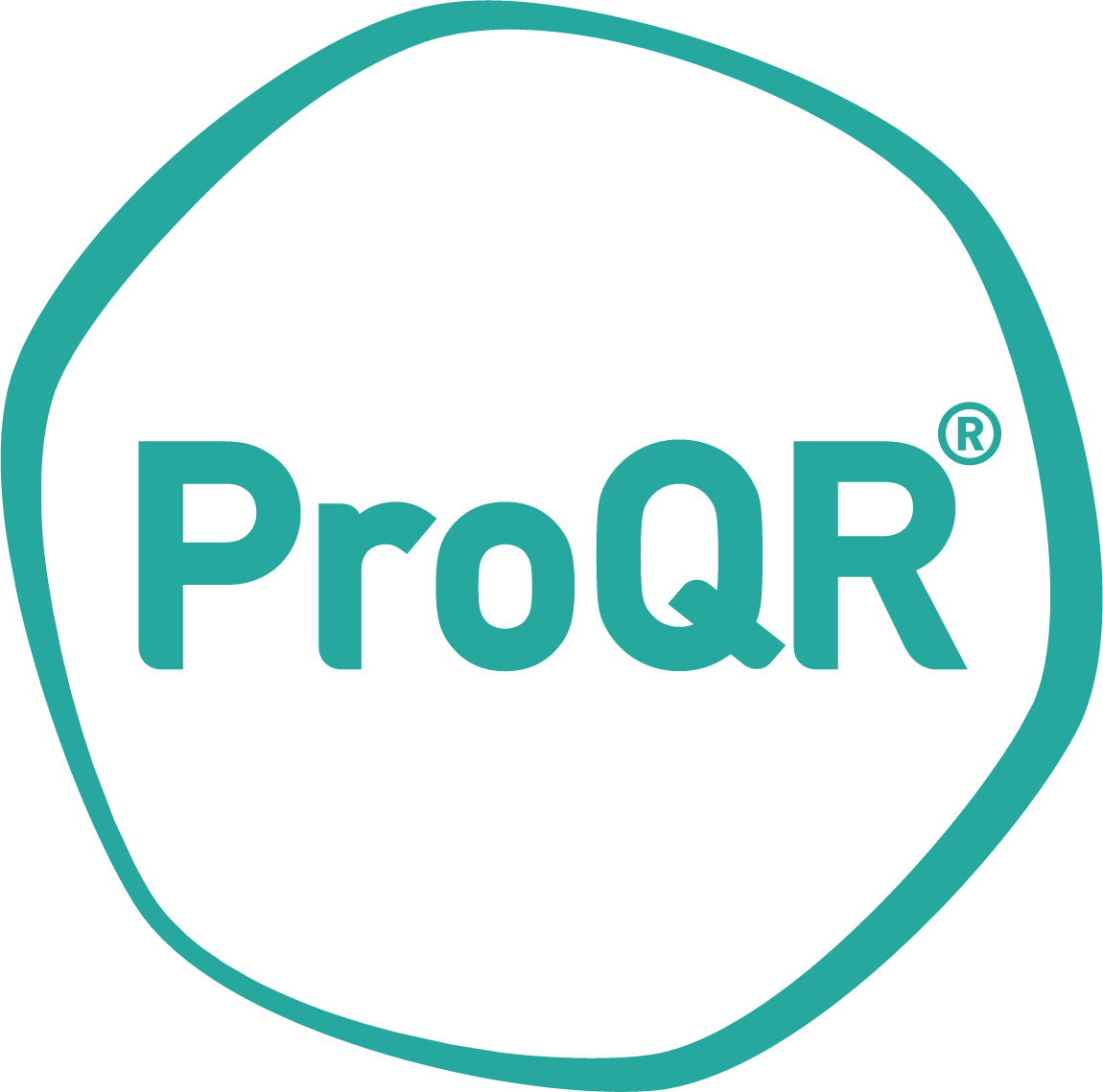Schedule at a Glance
Saturday, July 13, 2019, 7:00 AM - 5:00 PM EST
Philadelphia Marriott Downtown
Ballroom, 5th Floor
Link to expanded view of the program
View the schedule below:
-
7:00 - 8:30 AM Continental Breakfast and Registration

Continental Breakfast and Registration will be on the 5th floor near the entrance to the Ballroom.
-
Margaret Kenna, MD, MPH, Keynote Speaker
Boston Children's Hospital8:45 - 9:25 AM Keynote Presentation: "Treatments of the Future for Usher Syndrome: The future is now"

Margaret Kenna's research focuses on pediatric otology; currently, she is studying the underlying causes of sensorineural hearing loss (SNHL), the most common congenital sensory impairment. Her research includes the genetics of hearing loss, especially GJB2 (Connexin 26) and Usher syndrome; anatomic inner ear anomalies and vestibular function testing; and congenital cytomegalovirus infection. Dr. Kenna's earlier research focused on the causes and treatment of chronic suppurative otitis media (CSOM). She and her colleagues in Pittsburgh established that medical, not surgical therapy was very effective and should be the initial management option.
Presentation Summary:
Treatments of the Future for Usher Syndrome: The future is nowUsher Syndrome is a genetic deaf-blind syndrome with at least 9 associated genes. Until now, management has been based on supporting the hearing loss with hearing aids, cochlear implants, and language therapy; the vison loss with Vitamin A, antioxidants, and limited exposure to light. Genetic therapy is in its early infancy, but growing. Various techniques targeting different aspects of the genetic code are being developed in the laboratory and n animal models, with many of these techniques potentially applicable to human Usher syndrome. Gene silencing, gene destruction, and gene supplementation are varying approaches to treatment. Additional techniques include gene editing (using CRISPR-Cas9, etc.), replacement genes attached to viral vectors, RNA interference/editing, antisense oligonucleotides, and the use of organoids to study various therapies. Examples of these different treatments include RNA-based therapies for Leber’s amaurosis and an exome-skipping strategy for USH2A; CRISPR-based therapeutics for LCA10, eliminating a mutation in the CEP290 gene; the use of stem cells to create functional new cells, and progenitor cell activation, proposed for sudden hearing loss and noise-related hearing loss. Although most of these proposed therapies remain in the lab and experimental, and not all will be applicable to every genetic disease, results are exciting and give hope for the future.
-
Dario Sorgato
Featured Speaker from the USH Community9:25 - 9:45 AM "Usher Inspiration: From Dreams to Action"
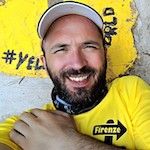
Dario Sorgato was born in Italy in 1978. He grew up in Padua and moved to Milan to study Design. At the age of 16 he was diagnosed with Usher syndrome.
After graduation he undertook several travels, seeking new challenges and determined not to be stopped by sensory limitations. Dario spent one year in Australia and New Zealand, he completed the Camino de Santiago, he joined the crew of the “Research Vessel Heraclitus” and sailed for nearly two years from Cape Town to Havana.
In 2011, he founded “NoisyVision”, a non-profit organization, to raise awareness about sensory disabilities and promote activities for people with visual and/or hearing impairments.
Presentation Summary:
Usher Inspiration: From Dreams to Action
It is because of the vision and hearing loss that people with Usher syndrome have the possibility to see and hear like no one else. Without denying the problems and hurdles of daily life, people with Usher can learn to understand the signals of their own world and share their uniqueness. The inspiration of what people with Usher can do is not only for the Usher community but also for those who think they see and hear because their eyes and ears are functioning. Given the fact Usher syndrome is a challenging condition, it can be transformed into something positive. Starting from his personal experience and travels through the achievements of the NGO he founded, Dario Sorgato will provide some ideas on how to pursue your goals and think about your next step, perhaps the first, to realize your own dreams.
-
9:45 - 10:00 AM “Establishing a translational read-through approach for inherited retinal disorders”
Susan Schneider, MD
Eloxx Pharmaceuticals, USA and Israel9:45 - 10:00 AM “Establishing a translational read-through approach for inherited retinal disorders”

Dr. Schneider serves as Senior Vice President of Clinical Development, Ophthalmology at Eloxx. She has nearly 15 years of experience in drug development while serving as Chief Medical Officer at ThromboGenics (now Oxurion), Vice President and Therapeutic Area Head of Retina and Glaucoma at Allergan, Vice President Retina, at Acucela, Sr. Medical Director at GlaxoSmithKline, Director, Clinical and Scientific Affairs for Ophthalmology at Bausch & Lomb, Vice President and Chief Medical Officer, US Clinical Affairs at Santen, and Medical Director at Genentech. While at Genentech, she worked extensively on the ranibizumab program. Her current focus is developing potential therapies for Inherited Retinal Disorders.
Dr. Schneider received her medical degree from the Medical College of Pennsylvania followed by residency in ophthalmology at the Medical College of Virginia. She completed fellowship training in ocular oncology at Thomas Jefferson Wills Eye Hospital and in ophthalmic pathology at The Johns Hopkins Wilmer Eye Institute.
Presentation Summary:
Establishing a Translational Read-Through Approach for Inherited Retinal Disorders
Purpose: We are developing a novel approach to addressing inherited retinal disorders, including Usher Syndrome, that is being evaluated as a series of Eukaryotic Ribosome Selective Glycosides (ERSGs), delivered to the eye by intravitreal injection. These compounds are optimized to promote read-through of premature stop codons to restore essential proteins that are missing due to nonsense mutations.
Methods: Read-through of Usher mutations, functional restoration of protein production associated with a nonsense mutation, tolerability, and pharmacokinetics of retinal exposure evaluations were performed.
Results: In vitro models demonstrated positive read-through of up to 2.5-fold over baseline with Usher 1F and Usher 2A mutations. Ocular tolerability was assessed in a rabbit model. ERG and histopathology evaluation showed superior tolerability of intravitreally injected Eloxx compounds relative to another read-through inducing agent, gentamicin. There was no adverse effect on intraocular pressure. Substantial retinal exposure was demonstrated.
Conclusion: These results demonstrate positive early evidence of a novel read-through approach for inherited retinal disorders, including Usher Syndrome. The data support continued development of these novel small molecules for intravitreal delivery to restore production of full-length functional proteins in the retina as a potential common therapeutic option for these diseases.
-
10:00 - 10:30 AM Break/Networking

-
Christine Kay, MD
Vitreoretinal Associates, Gainesville, Florida10:30 - 11:00 AM "RUSH2A Study - the Importance of Natural History Studies"

Christine Kay, M.D. is the director of electrophysiology, retinal genetics, and clinical trials at Vitreoretinal Associates in Gainesville, Florida. Prior to this, she was an Assistant Professor and director of the retinal fellowship and retinal genetics service at the University of Florida. She graduated from Harvard University with a magna cum laude in neuroscience, went to medical school at the University of Florida, and completed her vitreoretinal surgical fellowship at the University of Iowa.
After her vitreoretinal surgical fellowship, she was awarded a 5-year Career Development Award from the Foundation Fighting Blindness which funded research focusing on genetic treatment of achromatopsia. She is now a PI in the AGTC-sponsored achromatopsia gene therapy trials. She is also a PI and surgeon in the Nightstar XIRIUS trial for XLRP, and a PI in the Alkeus-sponsored Stargardt disease trial, Foundation Fighting Blindness sponsored RUSH2A trial, and Ophthotech trial for Stargardt disease. She has a large IRD patient population, with over 900 patients in her clinical database and with 650 of these patients genotyped.
Dr. Kay was recently inducted into both Macula Society and Retina Society. She has been an invited speaker at the annual Foundation Fighting Blindness VISIONS conference for the past 6 years, is actively involved in FFB’s clinical trial consortium for inherited retinal disease, and teaches courses on gene therapy annually at American Society of Retina Specialists and Academy of Ophthalmology.Presentation Summary:
RUSH2A Study: The Importance of Natural History Studies
In this presentation, we will begin with a very brief clinical overview of Ush2A-related retinal degeneration, and discuss the both syndromic and nonsyndromic Ush2A. This will be followed by an in-depth discussion of the RUSH2A natural history study design, inclusion/exclusion criteria, outcome measures, and protocol. No RUSH2A results will be released at this time since study and analysis are still ongoing. We will then discuss from a broader perspective the importance and relevance behind natural history studies. Natural history studies are critical in identification and characterization of a patient population, aiding drug development, and informing clinical trial design and outcome measures. We will end with a question and answer session.
-
Aniz Girach, MD
ProQR Therapeutics, Netherlands11:00 - 11:30 AM "Qr-421a, an Antisense Oligonucleotide for the Treatment of Retinitis Pigmentosa Due to USH2A Exon 13 Mutations"
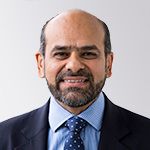
Aniz Girach, MD is ProQR's Chief Medical Officer. After having spent 11 years in academia, he joined the pharmaceutical industry with Eli Lilly, focusing on retinal diseases. He has in total 22 years industry experience in roles with Merck, as their Global Head of Ophthalmology, and Alcon, where he was Vice President of Clinical Development, and ThromboGenics (now Oxurion), where he was the Global Head of Ophthalmology/Chief Medical Officer overseeing the development and approval of Ocriplasmin (Jetrea)—a first in class biologic therapy for retinal disease. In addition to an Honorary Professorship at Wills Eye Hospital, Philadelphia, USA, he was recently the Chief Medical Officer at Nightstar Therapeutics, overseeing the development of gene therapies for inherited retinal diseases. He is a member of three Scientific Advisory Boards for international ophthalmic organizations currently, and reviewer for five peer-reviewed journals, including Eye and IOVS. He has edited four books and published over 100 abstracts/manuscripts in peer-reviewed journals in Ophthalmology.
Presentation Summary:
QR-421a, an Antisense Oligonucleotide for the Treatment of Retinitis Pigmentosa Due to USH2A Exon 13 Mutations
Usher syndrome (USH) is a common inherited retinal degeneration (IRD), which affects hearing, balance and vision. USH caused by USH2A mutations is one of the commonest causes of both USH and RP with syndromic features. Currently there is no treatment for the devastating sensory deficits caused by USH. In an attempt to fill this void, QR-421a is an antisense oligonucleotide (ASO) and designed to specifically target mutations in exon 13 of the USH2A gene for the treatment of patients with RP. QR 421a binds to a specific sequence in the USH2A pre-messenger ribonucleic acid (mRNA) and modulates splicing by enhancing exon-skipping. Skipping of exon 13 from the USH2A pre-mRNA results in mRNA without exon 13, that is expected to lead to functional (albeit shorter) Usherin protein. It is hypothesized that treatment with QR-421a will result in restoration of functional Usherin protein in photoreceptors and restoration of vision. The first-in-human study of QR-421a (PQ-421a-001) has already commenced and will evaluate the safety and tolerability of a single dose of QR-421a in adult subjects with RP due to mutations in exon 13 of the USH2A gene. QR-421a will be administered via intravitreal injection in the worst eye. A potential dose response relationship and duration of effect following a single dose of QR-421a, based on improvements in retinal structure or visual function, will also be investigated to inform selection of dose level(s) and dosing intervals for subsequent studies of QR-421a clinical development.
-
11:30 - 12:30 PM USH Research Panel Q&A
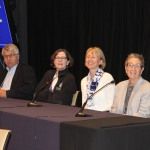
*Moderator* Dr. Margaret Kenna
Panelists: Dr. Aniz Girach, Dr. Christine Kay & Dr. Susan Schneider
-
12:30 - 2:00 PM Lunch/Networking

-
Lanya McKittrick, PhD and Carly Fredericks
2:00 - 2:30 PM "Importance of Collaboration in the Educational System: Identifying Your Team Players"
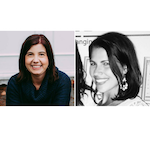
Lanya McKittrick received her Ph.D. in Special Education at the University of Northern Colorado. Her dissertation is titled Strategies that Parents of Children who are Deafblind Employ to Foster Collaboration within IEP Teams. Her research interests include: services and supports for students who are deafblind and their families; family-professional partnerships; student-led IEP’s; and transition. Her research is rooted in her personal experience as a mom to four sons, two who have Usher Syndrome (Dalton, age 11 and Conner, age 20). Lane co-founded the Hear See Hope Foundation to raise awareness and funding for Usher research and to support families through their Usher journey.
Carly Fredericks has a love for the field of deafblindness. As founder and President of Ava’s Voice, she empowers youth with Usher syndrome and educates families and school communities. She is also the Program Coordinator for iCanConnect/NJ, the Deaf-Blind Equipment Distribution Program that provides telecommunications equipment for individuals with combined hearing and vision loss. She has been a Family Specialist for the New Jersey Consortium on Deaf-Blindness and has been on the Board of The National Family Association for the Deaf-Blind (NFADB). Carly is mom to Ava (age 12) who has Usher syndrome (Ava age 12).
Presentation Summary:
Importance of Collaboration in the Educational System: Identifying Your Team Players
Parents of children who have Usher syndrome have unique challenges before, during, and after Individualized Education Program (IEP) meetings. Often there is a lack of professional knowledge about deafblindness, thereby requiring families to gain and share knowledge. Because parent knowledge and advocacy are essential roles, there is a need to understand better how parents advocate and share knowledge during the IEP meeting. The results from this qualitative research study will offer participants an understanding of parent-initiated strategies used to increase IEP team collaboration and to address their child’s needs, paying careful attention to the much-neglected area of deafblindness. Families can benefit from hearing from other families experiences. The leadership skills and strategies identified in this study will provide families with ideas about how to advocate and share knowledge using a firm, but positive approach.
In addition to sharing advocacy strategies identified in the research study, the presenters will share their personal experiences as moms of children with Usher syndrome, offering practical strategies they use when working with educational teams.
Learning Objectives:
- Participants will be able to identify parent-initiated strategies for advocating for their children in IFSP and IEP meetings.
- Participants will gain a better understanding of some of the challenges that students with Usher syndrome experience in the classroom because of the dual-sensory loss.
-
Ryan Thomason
Adult with Usher syndrome2:30 - 3:00 PM "The Benefits of Federal Employment for People with Usher Syndrome"
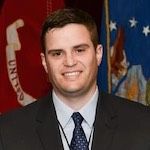
Ryan Thomason was born and raised in Lake Stevens, Washington, a small town north of Seattle. Sports was a big part of growing up for him. Ryan loved training and competing in football, basketball and then track and field. After high school, Ryan went to Central Washington University, where he competed on the Track and Field team, got a BA in Administrative Management and Information Technology, and was lucky enough to meet the love of his life, Jennifer. After a nine-year stint in Utah, where both of Ryan’s kids (Lincoln and Finley) were born, he enrolled into the MBA program at Weber State University that gave him the tools he needed to start a new career in the Department of Defense as a federal employee in Philadelphia. Ryan and his family have been in Philly since 2016 and have been enjoying everything that the East Coast has to offer for their family!
Presentation Summary:
The benefits of federal employment for people with Usher Syndrome
What is the federal mandate to hire people with disables and how can I make it work for me?
How a 'Schedule A Letter' will get your name toward the top of the review pile and how to apply for federal jobs. How the Department of Labor's Workforce Recruitment Program benefits current college students and recent graduates with disabilities looking for internships and full-time employment. Learn about how non-profits and businesses use the Ability One program and how this program for the blind is obligated by the federal government to be a first source selection of supply/services contracts.
-
3:00 - 3:30 PM Break/Networking

-
4:45 - 5:00 PM Closing

-
6:00 - 8:00 PM Evening Social

Please join us for an evening of socializing at the Philadelphia Marriott Downtown. Appetizers will be provided. Cash bar. Tickets can be purchased on our registration page.
Sponsors
SILVER SPONSOR:
FAMILY SCHOLARSHIP SPONSOR:
The McKittrick Family
BRONZE SPONSORS:
Akouos
Eloxx Pharmaceuticals
Ush One See
PORTRAIT EXHIBIT:
"Shine a Light on Usher Syndrome" by the Usher Syndrome Society*
Exhibitors
Ava's Voice*
Eloxx Pharmaceuticals
Foundation Fighting Blindness
Hear See Hope*
Helen Keller National Center
Leader Dogs for the Blind
MED-EL Corporation
National Family Association for Deaf-Blind (NFADB)
New York Deaf-Blind Collaborative (NYDBC)
Sprint Accessibility
Usher 1F Collaborative*
*USH Partner



